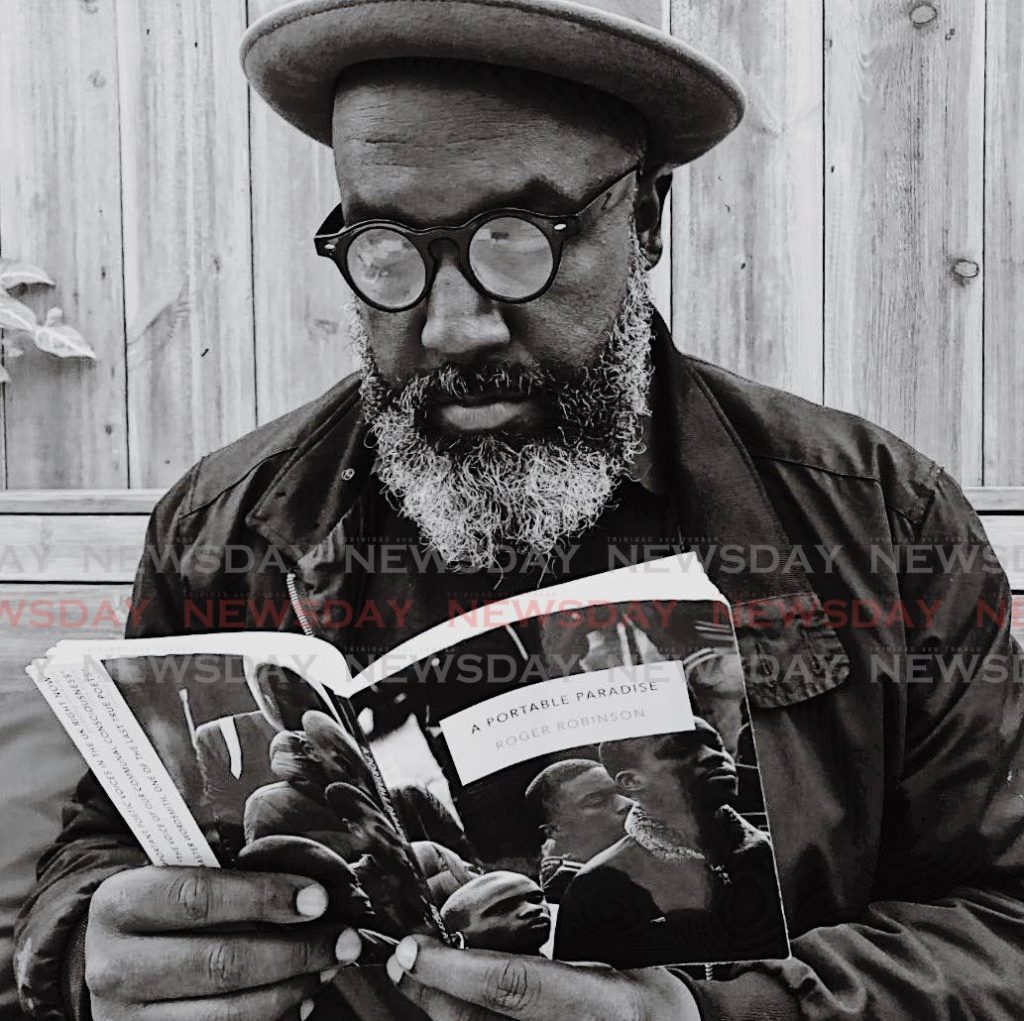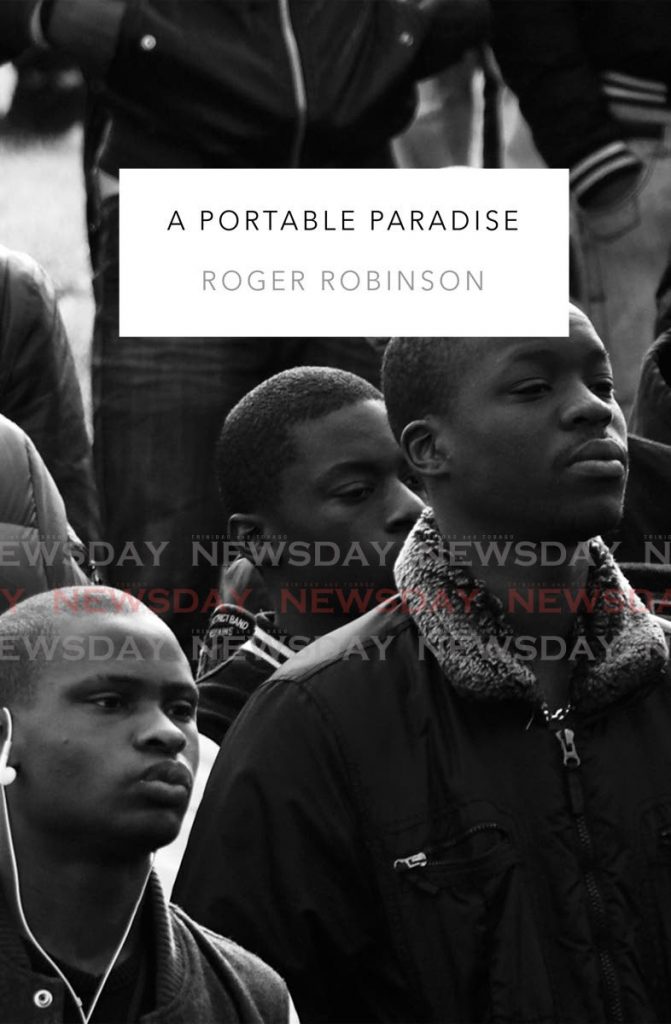A poet finds paradise

Amilcar Sanatan
In conversation with fellow poet Nick Makoha for Wasafiri magazine, Roger Robinson says, “I had the idea of A Portable Paradise roughly looking at leaving Trinidad and coming to England and feeling my roots are in England now.”
Robinson was born in England but spent most of his childhood and adolescent years in Trinidad, where he attended Naparima College. He credits TT for developing his poetic sensibility: he read Caribbean writers such as Derek Walcott in the classroom and observed playwright Ralph Maraj, who taught at the school.
He returned to the country of his birth at 19 to live with his grandmother in Essex. Robinson’s career in poetry began in the 1990s when he participated in workshops on poetry writing and spoken-word performance.
His poetry drives some of his other creative outputs, in theatre and as the lead singer fo the band King Midas Sound. In 2001, he co-founded the London-based writers’ collective Malika’s Kitchen. His first full collection of poems, The Butterfly Hotel, was longlisted for the local OCM Bocas Lit Prize in 2014.

The award of this year’s TS Eliot Prize to the Trini-British poet for his A Portable Paradise will hopefully stimulate interest in literature on Caribbean, black British and “dub poetry” bookshelves in the UK – and in the “local books” section (sometimes labelled in marker on bristol board) in TT.
The TS Eliot Prize for Poetry, inaugurated in 1993, is given annually for “the best new poetry collection published in the UK or Ireland.” The winner receives £25,000.
Robinson is the second writer from the Caribbean to win it; Derek Walcott won for his 2010 collection White Egrets.
Robinson’s success comes at a time when there is a vibrant spoken-word movement in TT. He is a contemporary example of an internationally recognised writer-performer from the Caribbean who is not confined by the perceived boundaries between written poetry for publication and poetry performed on the stage.

There is political urgency in Robinson’s writing: it brings visibility to marginalised people, and blasts the stories of Jamaican nurses, young Muslims and black men in England on a speakerphone. He narrows in with laser focus on the lives of ordinary people – “hoodied boys,” grandmothers who “dice goat meat and season it” and the “Bob Marley in Brixton” buying a peanut punch without a revolutionary context for his rebel music.
In A Portable Paradise, the poetry carries journalistic detail of ongoing political events and a historical consciousness that anchors the record of the contemporary.
Robinson has consistently acknowledged his literary and intellectual mentors in interviews, the likes of Bernadine Evaristo and Kwame Dawes. The poems in this collection return the favour and offers mentorship to disaffected youth in England, a mentorship practice by way of poetry.
In The Darkening Red of Your Blood, he writes, “Realise that keeping yourself alive/is bigger than racism and disrespect. Keep alive/young brothers, keep living.”


Comments
"A poet finds paradise"